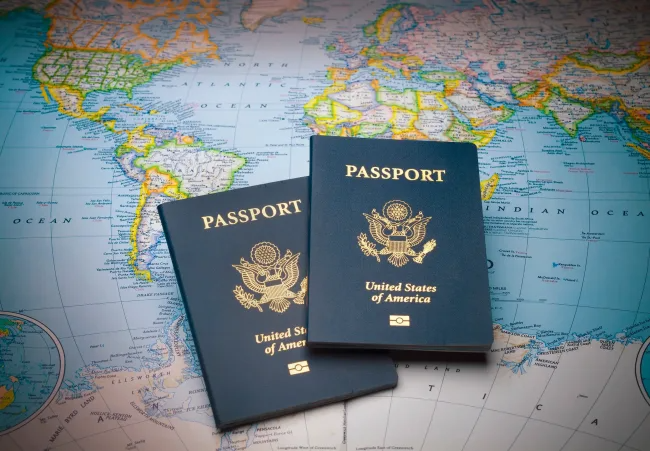Traveling to a foreign country often involves more than just booking a flight and packing a suitcase. One of the most crucial steps in preparing for international travel is understanding the visa process. Visas are official documents or stamps placed in your passport that grant permission to enter, stay, or leave a country for a specific purpose and period. While some countries offer visa-free entry for certain nationalities, many travelers must apply for and obtain a visa before departure.
Understanding the various types of visas and the reasons they are required is essential to ensure a smooth travel experience. Each country has different visa regulations depending on bilateral agreements, immigration laws, and national security protocols. In this guide, we’ll explore the significance of visas, their different categories, and the application procedures involved.
What Are Travel Visas and Why Are They Important?
Visas play a key role in international travel and immigration. They serve as an authorization issued by a country to foreign nationals, allowing them to enter and remain within its borders for a designated period. A visa indicates that the traveler has met the necessary requirements and that the host country has reviewed and approved their entry.
The importance of visas extends beyond just legal entry. They help governments control the flow of visitors, monitor national security, and maintain border integrity. Whether you are traveling for tourism, business, education, or employment, securing the appropriate visa is crucial to avoid legal complications and ensure a hassle-free journey.
Different Types of Travel Visas
Tourist Visas
Tourist visas are the most commonly issued type of visa. They are granted to travelers who intend to visit a foreign country for leisure, sightseeing, or visiting family and friends. These visas usually come with specific restrictions, such as prohibiting employment or long-term stays.
Most countries issue short-term tourist visas that are valid for a few weeks to a few months. Travelers are often required to present documentation such as hotel reservations, return tickets, and financial proof to show that they can support themselves during their visit. Some countries offer visa-on-arrival or e-visa options for added convenience.
Business Visas
Business visas are intended for individuals visiting a foreign country for work-related purposes without directly engaging in local employment. These visas are often used for attending conferences, business meetings, or negotiating contracts.
While business visas typically do not allow holders to earn income within the host country, they may permit multiple entries and extended stays depending on the visa policies. Documentation like invitation letters from host companies, conference details, and business registration certificates are usually required during the application process.
Student Visas
A student visa is required for individuals planning to study abroad at an accredited institution. This type of visa is typically issued for the duration of the academic program and may come with specific requirements regarding part-time work and health insurance.
To obtain a student visa, applicants generally need to present proof of admission from a recognized institution, evidence of financial resources, and possibly language proficiency test scores. Student visas may also grant limited employment rights, depending on the destination country’s regulations.
Work Visas
Work visas allow foreign nationals to be legally employed in another country. They are often more complex to obtain and require sponsorship from an employer in the host country. These visas vary greatly depending on job type, industry, and skill level.
Applicants for work visas usually need to provide employment contracts, proof of qualifications, and sometimes pass medical exams. Some countries impose strict quotas or labor market testing to ensure that local workers are not disadvantaged.
Transit Visas
Transit visas are short-term visas granted to travelers who are passing through a country on their way to another destination. These are typically required if the layover exceeds a specific number of hours or if the traveler needs to leave the airport transit area.
Transit visas are usually valid for 24 to 72 hours and may not allow for overnight stays or city visits. Travelers should always check whether a transit visa is required based on their flight itinerary and nationality.
Visa-Free Travel and Visa-on-Arrival
Some countries have bilateral or multilateral agreements allowing visa-free entry for short stays. In such cases, travelers can enter the country without a visa for tourism or business purposes, often for up to 90 days.
Visa-on-arrival options allow travelers to obtain a visa upon entering the destination country, eliminating the need for pre-departure applications. However, requirements such as passport validity, return tickets, and proof of funds still apply. It’s important to check eligibility criteria beforehand.
The Visa Application Process
Applying for a visa typically involves multiple steps and careful attention to detail. The process can vary significantly based on the destination country, visa type, and the applicant’s nationality. However, several common procedures are involved in most visa applications.
First, travelers must determine the appropriate visa type based on the purpose of their trip. After identifying the correct category, they should gather all required documents, which often include a valid passport, photographs, application forms, and supporting materials like itineraries, invitations, or proof of enrollment.
Once the documentation is ready, applicants usually need to schedule an appointment at the consulate or embassy or submit their application online if an e-visa option is available. Some countries may also require biometric data collection and interviews. It’s crucial to apply well in advance to avoid last-minute complications.
Common Reasons for Visa Denial
Visa applications can be denied for various reasons, ranging from incomplete documentation to security concerns. Understanding these factors can help applicants avoid mistakes and improve their chances of approval.
One of the most common reasons for denial is submitting incorrect or insufficient information. Failure to provide necessary supporting documents or discrepancies in application forms can result in rejection. Additionally, lacking financial proof or a clear travel purpose may also lead to denial.
Other reasons include past immigration violations, criminal records, or suspicions of intent to overstay. It’s important for applicants to be transparent, provide honest answers, and ensure their travel intentions align with the visa category they are applying for.
Tips for a Successful Visa Application
Applying for a visa can be a nerve-wracking experience, but there are several best practices that can improve the likelihood of approval. First, start the process early to accommodate possible delays or additional requirements.
Double-check all documents for accuracy and completeness. Ensure your passport has adequate validity and blank pages for visa stamps. When attending interviews, dress professionally and confidently explain your travel purpose and ties to your home country.
Consult the official embassy or consulate website for the most accurate and updated information. Consider seeking guidance from experienced travelers or visa consultants if the process feels overwhelming.
How Visas Impact International Relations and Travel Trends
Visas not only serve a regulatory function but also reflect the diplomatic relationships between countries. Visa policies are often influenced by political alliances, trade agreements, and global events. For instance, visa waivers between allied nations can encourage tourism, student exchanges, and business collaborations.
Conversely, strained international relations may result in stricter visa requirements or suspensions. In today’s interconnected world, changes in visa policies can significantly impact travel trends, tourism industries, and even global migration patterns. Keeping up-to-date with these changes is essential for frequent travelers.
Conclusion
Understanding the purpose and process of obtaining travel visas is essential for every international traveler. Visas serve as gateways to cultural exploration, professional opportunities, and global connections. They ensure that travelers comply with the host country’s rules while protecting both individual and national interests.
Whether you’re planning a short vacation or a long-term relocation, researching the right visa type and preparing thoroughly can save time, reduce stress, and open the door to unforgettable experiences. In the ever-evolving world of international travel, being informed about visas is more important than ever.









